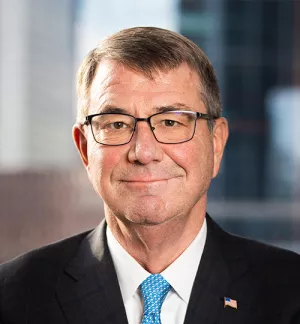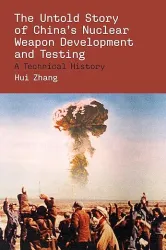The Nuclear Nonproliferation Treaty is arguably the most popular treaty in history: except for five states, every nation in the world is part of it. For more than three decades, it has helped curb the spread of nuclear weapons.
Since 9/11, however, and especially in the last several months, the viability of the treaty has been called into question. Some say it is obsolete. Others say it is merely ineffective. In support of its argument each side cites the situation in Iran, which has been able to advance a nuclear weapons program despite being a member of the treaty.
The Iranian nuclear program -- and, to a lesser extent, the activities of Libya, which has also signed the treaty but announced last week it would give up all illegal weapons programs -- highlight both the utility and the limitations of the treaty. It is not obsolete; if the treaty did not exist, we almost certainly would want to invent it. At the same time, it would be a mistake to rely on it exclusively to address the problem of nuclear proliferation.
Those who say the treaty is useless argue that the bad guys either don't sign the treaty, or they do and then cheat. The good guys sign and obey, but the treaty is irrelevant for these countries because they have no intention of becoming nuclear proliferators in the first place.
This all-or-nothing argument is wrong. First, it fails to acknowledge that there is an important category in between good guys and bad guys. For these in-betweens -- countries like Ukraine, Kazakhstan, South Africa, Argentina or South Korea -- the weight of international opinion against proliferation expressed in the treaty has contributed to tipping the balance of decision-making against having nuclear weapons.
Second, the treaty does have an impact even on "bad guys" like Iraq, Iran and North Korea. When the United States moves against such regimes, it does so with the support of the global opprobrium for nuclear weapons that the treaty enshrines.
This consensus undergirds the multilateral approach that is under way to resolve the North Korean nuclear issue, and was at the heart of the international pressure that persuaded Tehran to increase the transparency of its nuclear program. Even in the divisive case of Iraq, no one argued that Saddam Hussein should be left alone with weapons of mass destruction.
Yet the treaty is not perfect. It allows, for example, nations that forswear nuclear weapons to develop nuclear power for peaceful purposes. Signatories may build and operate nuclear power reactors, and they are permitted to produce enriched uranium that fuels the reactors, to store the radioactive spent fuel from those reactors, and to reprocess that spent fuel. The only specific obligations are that signatories declare these plants to the International Atomic Energy Agency and permit the agency to inspect them.
The problem is that this "closed fuel cycle" gives these countries the inherent capacity to produce the fissile material required for a nuclear weapon. Facilities used to produce enriched uranium for power reactors can also be used to produce enriched uranium for weapons. Reprocessing spent fuel yields plutonium that can be fashioned into nuclear weapons.
As North Korea and Iran demonstrate, regimes that intend to violate the treaty's ban on nuclear weapons can exploit this right to operate a nuclear power plant. While seeming to remain within the terms of the treaty, they can gather all the resources necessary to make nuclear weapons. Then they can abrogate the treaty and proceed to build a nuclear arsenal.
The world should renew its determination to curb the spread of nuclear weapons by supplementing the current treaty with additional inducements and penalties. The key is to draw a distinction between the right to a peaceful civilian nuclear power program and the right to operate a closed fuel cycle. The first should be preserved -- and perhaps enhanced -- but the second should be seriously discouraged, if not prohibited.
How might such a system work? In addition to their treaty obligations, those countries seeking to develop nuclear power to generate electricity would agree not to manufacture, store or reprocess nuclear fuel. They also would agree to submit to inspections (probably under the atomic energy agency) to verify their compliance.
Those countries that now sell peaceful nuclear technology in accordance with the treaty, meanwhile, would agree not to provide technology, equipment or fuel for nuclear reactors and related facilities to any country that will not renounce its right to enrich and reprocess nuclear fuel, and agree not to sell or transfer any equipment or technology designed for the enrichment or reprocessing of nuclear fuel. At the same time, these countries would agree to guarantee the reliable supply of nuclear fuel, and retrieval of spent fuel at competitive prices, to those countries that do agree to this new arrangement.
We might also consider sanctions on those countries that nevertheless choose to pursue a closed fuel cycle. Whatever the precise content and form of these undertakings, it would probably be better to treat them as a companion to that treaty, rather than embark on the complicated and controversial process of amending it.
Why would any countries that want to develop a peaceful nuclear power program agree to such a bargain? One blunt answer is that if these restrictions were put in place, these countries would have virtually no choice, because developing the necessary technology from scratch is a daunting task. Refusing the arrangement would open them up to international scrutiny and pressure. On the other hand, any country that was truly interested in developing nuclear power for peaceful purposes would undoubtedly welcome a guaranteed supply of nuclear fuel.
And why would countries that now supply nuclear technology be interested? First, no nation in this category has any interest in adding any country to the roster of the world's nuclear states. Second, over time, there probably is more money to be made in nuclear fuel services than in nuclear reactors.
Iran provides an excellent opportunity to test this approach. Building on the progress recently announced in Tehran, the United States should propose that Russian plans to help Iran build a network of civilian nuclear power reactors be permitted to proceed -- provided that Iran enters into a verifiable ban on its enrichment and reprocessing abilities, and into an agreement to depend instead on a Russian-led suppliers' consortium for nuclear fuel services.
The Russians would be likely to embrace such a proposal for commercial and political reasons, and the Iranians would be confronted with a clear test of whether they harbor nuclear weapons ambitions. Britain, France and Germany, whose foreign ministers recently proposed a similar scheme to Iran, would need only to avoid the temptation to undercut the Russians on behalf of their own nuclear industry. And the United States could reap the benefits of offering a constructive initiative to address the Iranian nuclear problem.
Of course, this new arrangement would hardly be a cure-all. And making it work would be difficult. But at a time when its effectiveness and relevance are being questioned, such an approach would strengthen the treaty by furthering its goals: preventing the spread of nuclear weapons while promoting the development of peaceful nuclear energy.
Carter, Ash, Dr. William J. Perry, General Brent Scowcroft and Dr. Arnold Kanter. “Good Nukes, Bad Nukes.” The New York Times, December 22, 2003







